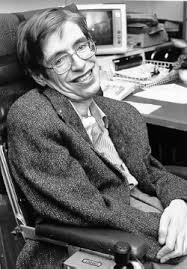
Introduction
Stephen Hawking, one of the most renowned theoretical physicists and cosmologists of our time, has left an indelible mark on the scientific community. His work on black holes, quantum mechanics, and the nature of the universe continues to inspire and influence new generations of scientists. Hawking’s life story—marked by remarkable achievements despite his battle with ALS—serves as a testament to human resilience and intellect.
A Brief Overview of His Career
Hawking was born on January 8, 1942, in Oxford, England. He exhibited an extraordinary talent for mathematics early on and later pursued his studies at University College, Oxford, before completing his PhD at the University of Cambridge. In 1974, he gained worldwide fame for his work on black hole radiation, subsequently known as Hawking radiation, which bridged concepts from quantum mechanics and general relativity.
Major Contributions to Cosmology
Hawking’s most significant contributions include the theoretical prediction of black holes emitting radiation, thus challenging the notion that nothing could escape them. He also collaborated on the ‘no boundary proposal,’ suggesting that the universe is finite but unbounded, a concept that reshaped our understanding of the cosmos. His bestselling book, “A Brief History of Time,” published in 1988, brought complex scientific ideas to the public and became a cornerstone of popular science literature.
Challenges and Triumphs
Despite being diagnosed with amyotrophic lateral sclerosis (ALS) at the age of 21, which left him almost completely paralyzed, Hawking continued to work and communicate through a speech-generating device. His tenacity and positive outlook galvanized many around the world, illustrating that adversities can be overcome through determination and innovation.
The Continued Impact of Hawking’s Work
Hawking passed away on March 14, 2018, but his legacy endures. Scholars continue to explore the implications of his theories, while popular media celebrates his life through documentaries and dramatizations. He showed that science is not just a collection of facts; it is also a creative endeavor, inspiring curiosity and wonder about the universe.
Conclusion
Stephen Hawking’s contributions to science and public understanding of astrophysics remain profoundly influential even after his death. He ignited a passionate interest in cosmology, and his work continues to serve as a foundation for current research. Hawking demonstrated that while our universe may be complex and mysterious, our pursuit of knowledge is limitless, urging future generations to keep questioning and exploring the wonders of space.



